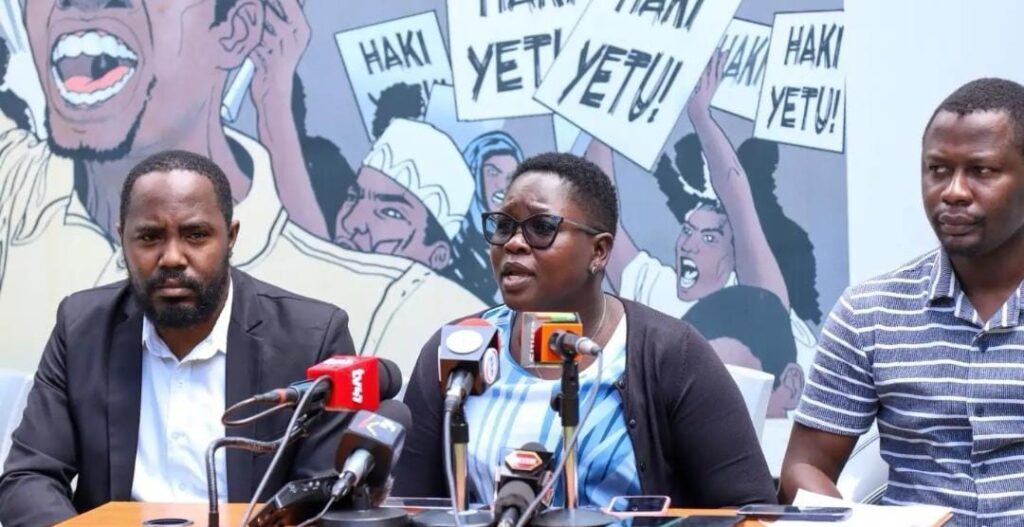
The Reproductive Health and Rights Alliance (RHRA) has raised serious concerns over the Kenyan government’s continued failure to adequately address critical sexual and reproductive health (SRH) challenges, particularly in the prevention and response to rape and defilement.
Citing a recent study by the Ministry of Health, the African Population and Health Research Center (APHRC), and the Guttmacher Institute, RHRA noted that an estimated 792,694 induced abortions occurred in Kenya in 2023. The report further revealed that although more than half of the women who experienced post-abortion complications received treatment in public health facilities, the quality and availability of care were severely limited. Only 18.3 percent of primary health facilities and 24.1 percent of referral hospitals were fully equipped to offer basic and comprehensive post-abortion care, respectively.
“These figures are a grim reflection of a health system that is failing women and girls,” RHRA stated. “The government’s continued neglect has resulted in avoidable deaths, trauma, and worsening inequalities.”
According to RHRA, the prevalence of unsafe abortions and maternal deaths—355 per 100,000 live births—is directly linked to chronic underfunding of the health sector. Kenya has consistently fallen short of the Abuja Declaration target of allocating at least 15 percent of the national budget to health. In the 2024–2025 fiscal year, only 3.18 percent of the Sh3.992 trillion national budget was allocated to health—down from 5.17 percent in 2022–2023. The free maternal healthcare program has been particularly affected, with its funding slashed from Sh4 billion in 2023–2024 to Sh2 billion this year.
RHRA also emphasized that a significant number of unsafe abortions are the result of rape and defilement. A 2023 report by the Center for Reproductive Rights found that, despite Article 26(4) of the Constitution permitting abortion when a trained professional determines it is necessary to protect a woman’s life or health, survivors of sexual violence are frequently denied safe abortion services due to stigma, legal ambiguity, and fear of criminalization. Instead of receiving care, justice, and protection, survivors are often silenced by cultural taboos, ineffective legal systems, and a healthcare system ill-equipped to meet their needs.
The Alliance warned that teenage girls are disproportionately affected by this crisis. Many who become pregnant as a result of rape or defilement are forced to drop out of school, endure lifelong trauma, or resort to unsafe abortions. This perpetuates a cycle of poverty, stigma, and limited educational opportunities, further entrenching gender inequality and undermining national development.
In response to the escalating crisis, RHRA called on the government to significantly increase investment in reproductive and maternal health services in the 2025–2026 budget. The Alliance also urged the government to strengthen the investigation and prosecution of rape and defilement cases, ensure accountability, and provide survivors with timely, adequate care. RHRA stressed the urgent need to expand youth-friendly and adolescent-specific SRH services, including access to emergency contraception, safe abortion where legally permitted, and psychosocial support. It also called for full implementation of mandatory re-entry policies for pregnant schoolgirls and robust measures to keep them in school. Additionally, the Alliance advocated for nationwide campaigns to combat stigma, raise awareness, and empower survivors of sexual violence.
“Kenya’s failure to invest in reproductive health and justice for survivors is costing lives and futures,” RHRA concluded. “We urge the government to act decisively and uphold its constitutional obligation to ensure the highest attainable standard of health for all.”

More Stories
NEMA Conducts Public Forum on Draft E-Waste and Environmental Assessment Regulations
TVET and Micro-Credentials Key to Youth Employment, Says Dr. Ekrah Ndung’u
NATIONAL LAND COMMISSION CEO JOINS COUNTY FIRST LADIES FOR LAUNCH OF 2025–2028 STRATEGIC PLAN**